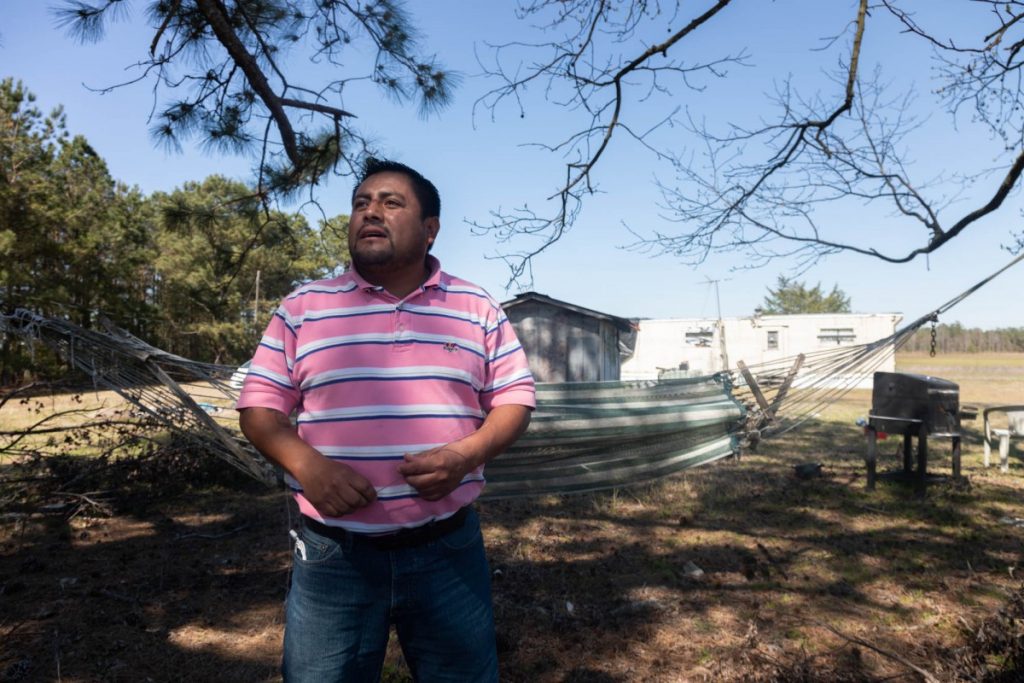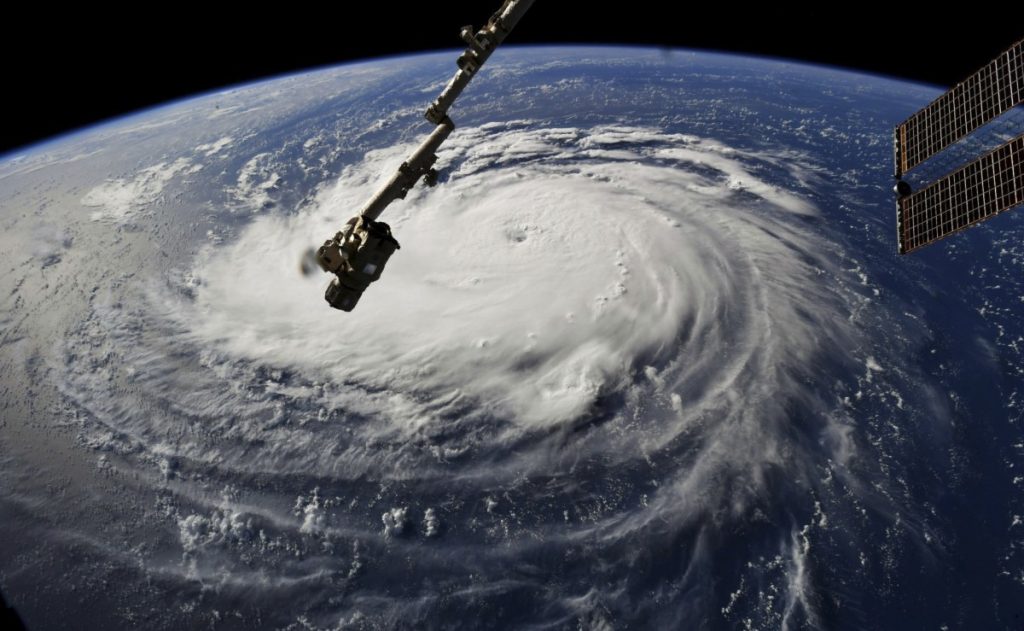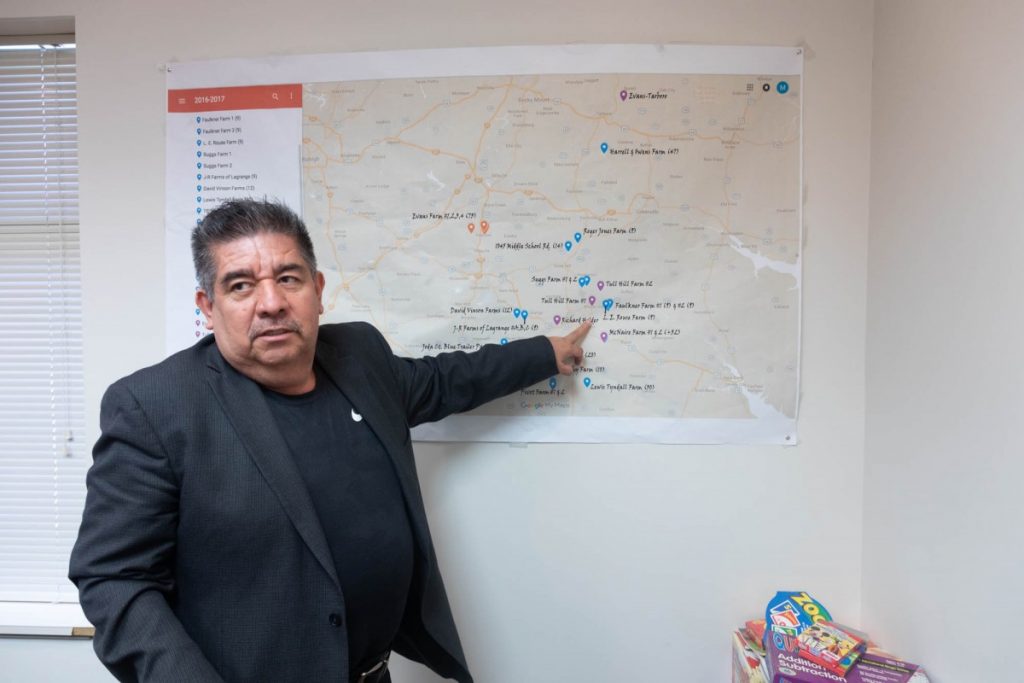The past several decades have seen a marked increase in natural disasters causing more than $1 billion in damage linked to climate change. Warming temperatures are also tied to storms dropping intense amounts of rainfall and ranging across wider geographic areas, especially in the Southeast. Hotter days and nights will likely follow in coming decades, scientists say.
Despite these harsh impacts — perhaps most clearly seen in last year’s Hurricane Florence, which caused an estimated $1.1 billion in agricultural damage alone in North Carolina — immigrant farmworkers, key to the economies of Southeastern states, continue to be overlooked during and after natural disasters.
In Unseen, we visit to North Carolina where we meet Martin Hernández, whose family came to the state from Guanajuato, Mexico, to work the fields 40 years ago — and who lost everything after Florence. He and others like him are now unsure whether to stay and continue to work as the agriculture industry there tries to rebound, to find work in another state, or to leave the country altogether.
We also talk to some of the nation’s leading climate scientists, natural disaster experts, and local and national community and advocacy groups, some of whom drove U-Hauls through flooded fields to save farmworkers after Florence, when everyone else had left them behind.
Meanwhile, the growers are also struggling to keep up with climate change; if immigrant farmworkers decide that the risks of extreme weather outweigh the potential paychecks from working the fields, what will happen to the agricultural sectors of the Southeast, including sweet potatoes, strawberries, tobacco, cotton and more? And if workers stay, and climate change planning continues to leave them out, what will happen to their health and safety?
Read the Series Below:
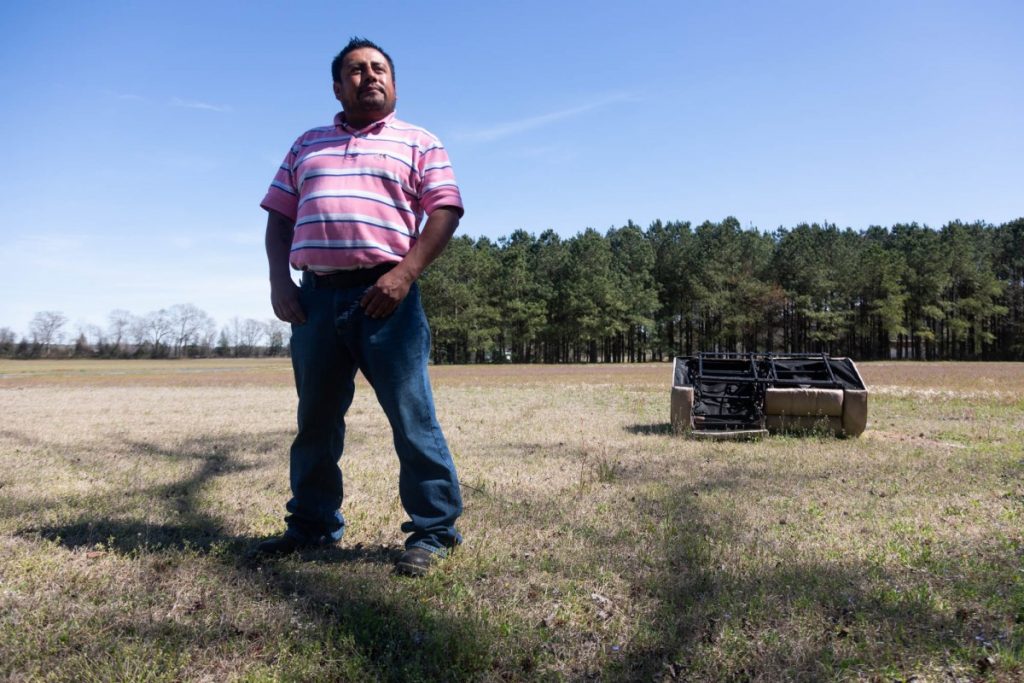
Martin’s Story
Martín Hernández lived in a mobile home with his wife and step-children at the edge of a North Carolina tobacco field for 12 years, but the undocumented worker had zero protection when Hurricane Florence destroyed everything he owned.
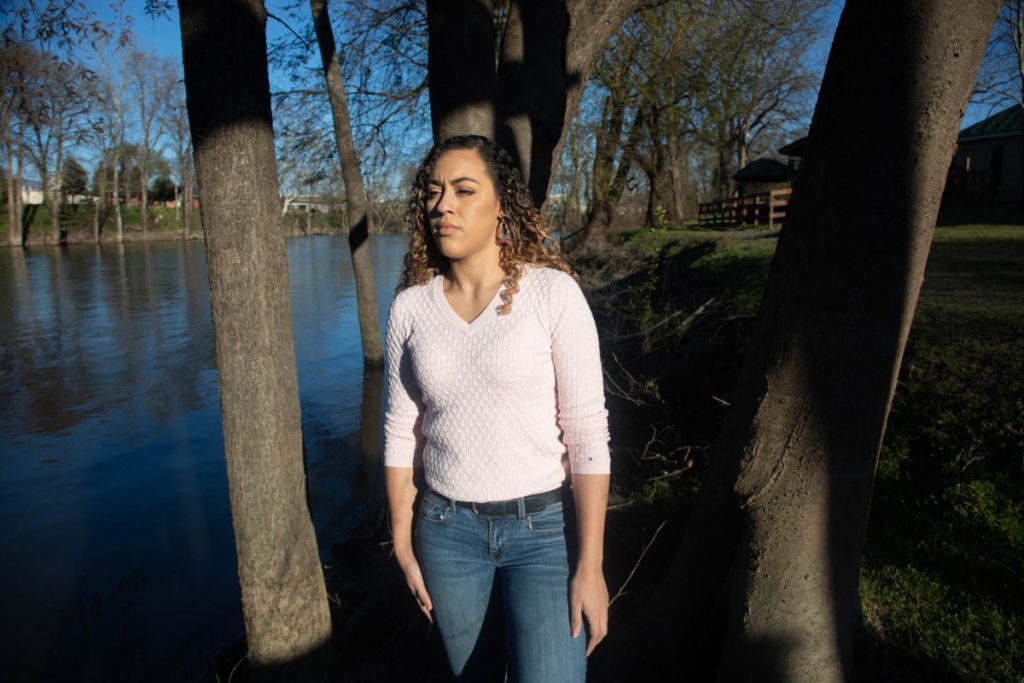
Yesenia’s Story
Yesenia Cuello says immigrant farmworkers are vulnerable during and after extreme storms whether they have a temporary visa or not, for reasons ranging from not speaking English to being afraid of federal immigration authorities.


